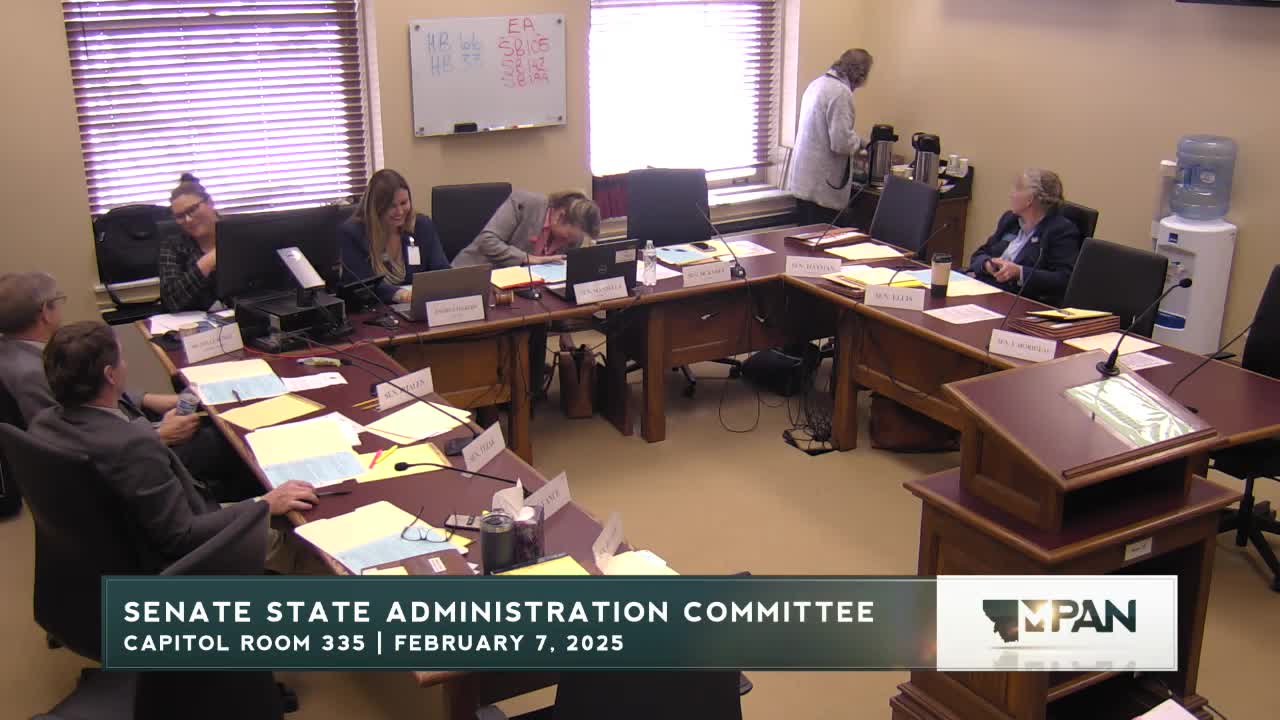Committee weighs bill letting agencies dismiss out-of-jurisdiction rulemaking petitions
Get AI-powered insights, summaries, and transcripts
Subscribe
Summary
Supporters described House Bill 33 as a customer-service change allowing agencies to summarily dismiss portions of citizen rulemaking petitions outside their legislatively granted jurisdiction; opponents warned it would allow agencies to avoid creating a written, evidentiary record and reduce accountability absent an internal appeal process.
The Montana State Administration Committee heard testimony on House Bill 33, a bill that would let executive-branch agencies summarily dismiss portions of citizen or legislator-submitted rulemaking petitions that fall outside an agency’s statutory rulemaking authority.
Representative Neil Durham, sponsor of the bill, described the measure as focused on Title 2 of the Montana Code (the Administrative Procedure Act) and said the bill was intended to allow agencies to “summarily dismiss any portion of a petition that is raised that's outside of the agency's regular regulatory jurisdiction.” He also read a House amendment requiring written decisions in summary dismissals to include contact information for any agency or body that potentially has jurisdiction over the issue.
Jeff Hindoyen, chief legal counsel for the Department of Fish, Wildlife and Parks (FWP), whose agency requested the bill, told the committee the change was intended to speed responses where petition requests clearly fall outside an agency’s authority and to improve customer service by steering petitioners to the appropriate agency. He said the amendment requiring contact information was intended to “let folks know what other agency may have the authority or jurisdiction to entertain that request.”
Opposing testimony came from attorney Brenton Craggs, who said the provision would let agencies avoid providing legal and evidentiary reasoning when they decline to initiate rulemaking and would erode accountability. Craggs told the committee an agency “can claim lack of jurisdiction on any” petition and warned there would be no internal appeal process under the bill; judicial review would remain the primary remedy. He urged the committee to vote no.
Committee members pressed witnesses on several points: whether the bill relates to Chevron deference (it does not), what existing MAPA requirements already require in writing and for judicial review, and whether agencies would maintain a paper trail when dismissing petitions. Hindoyen and agency staff said decisions to deny or initiate rulemaking would remain written and subject to judicial review, and they described internal petition intake procedures as a practical means to provide faster responses, especially when boards or commissions meet infrequently.
Why it matters: the change would alter how citizen-initiated or legislator-initiated petitions for administrative rulemaking are handled across Montana agencies. Supporters said it prevents lengthy intake processes that ultimately require boards and commissions to say they lack authority; opponents said it could remove a transparent, evidentiary record and reduce accountability unless the committee requires additional safeguards such as an internal appeal step or explicit record-making requirements.
Representative Durham closed by saying the bill could be innocuous but recommended the committee review agency petition-acceptance procedures and consider clarifying language before acting.
